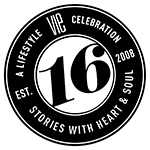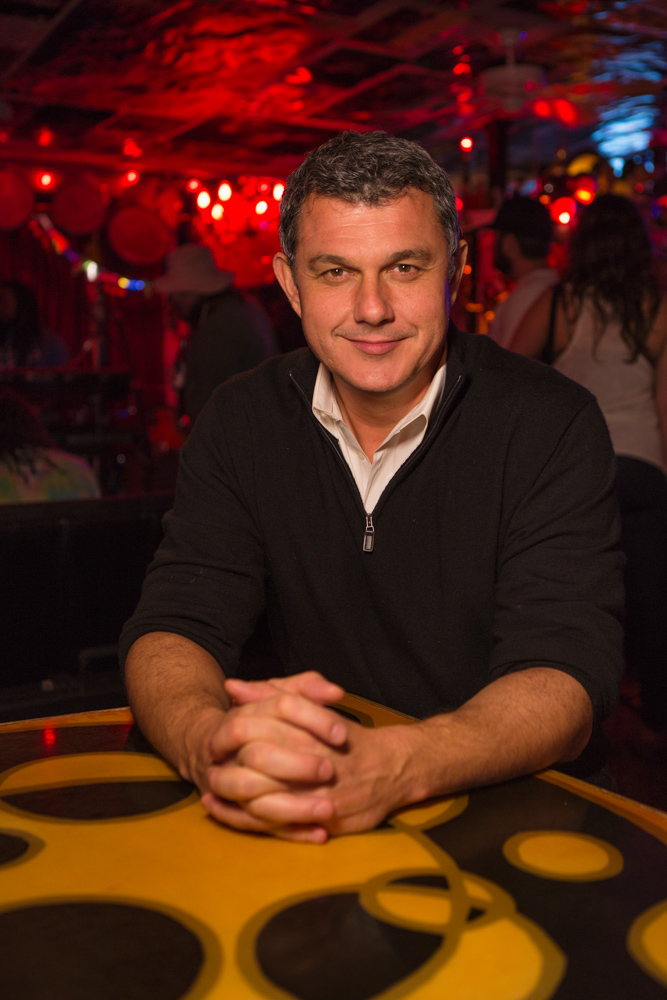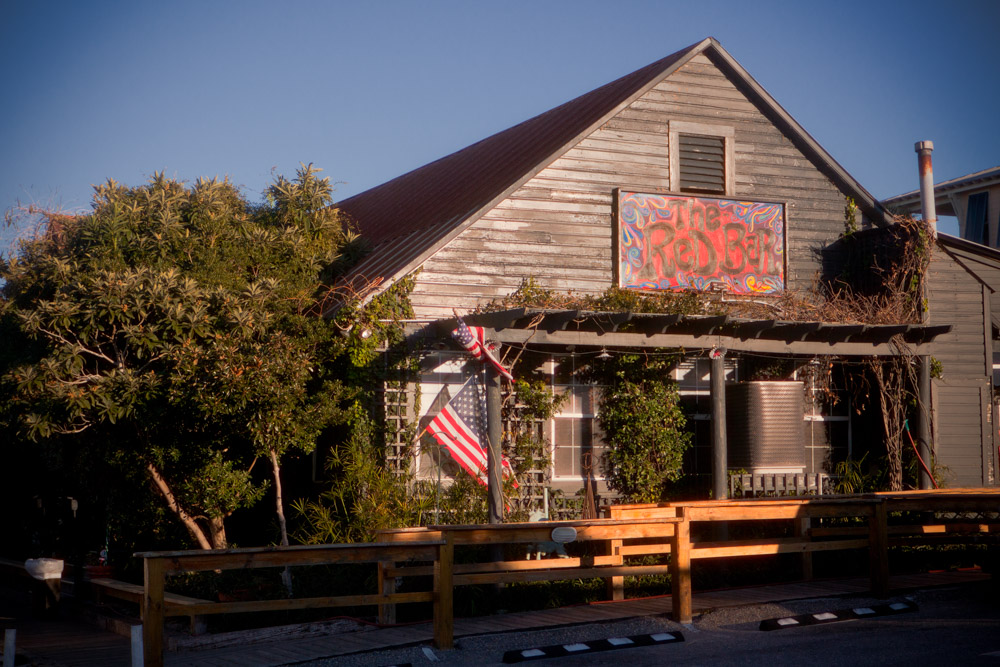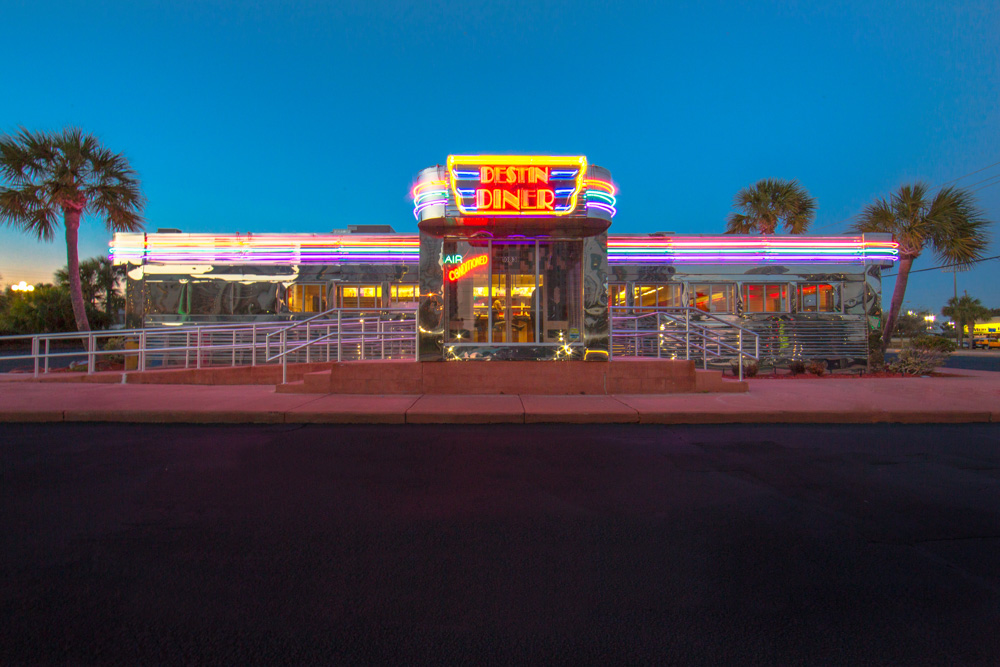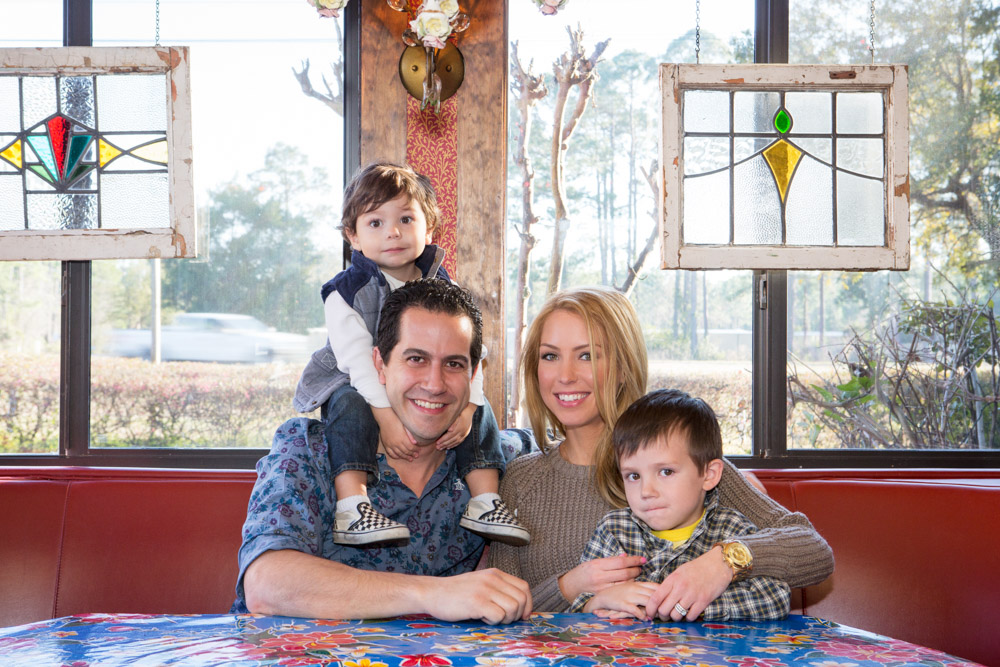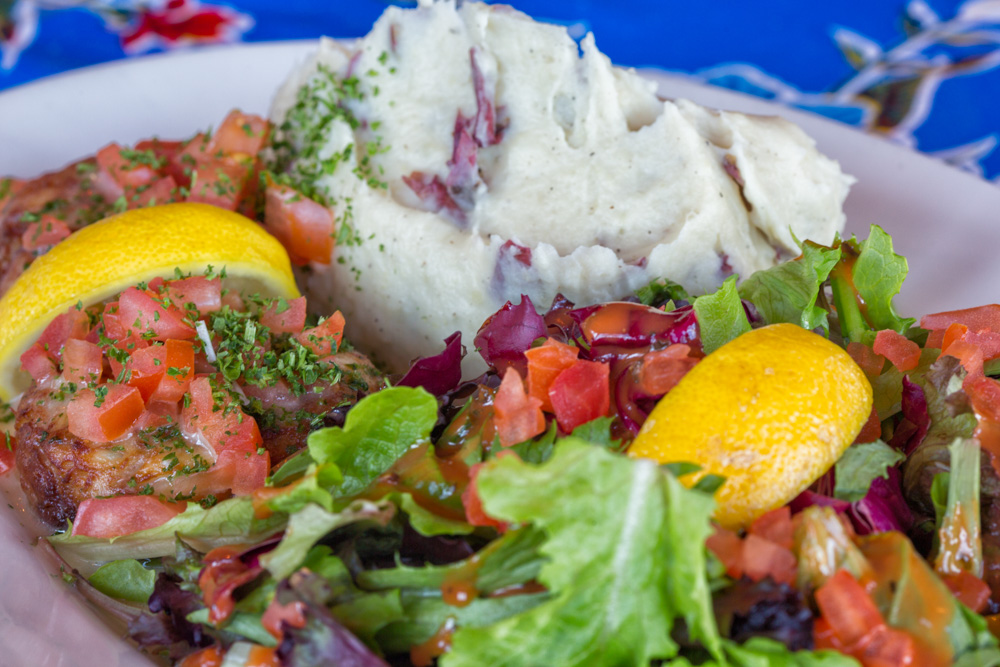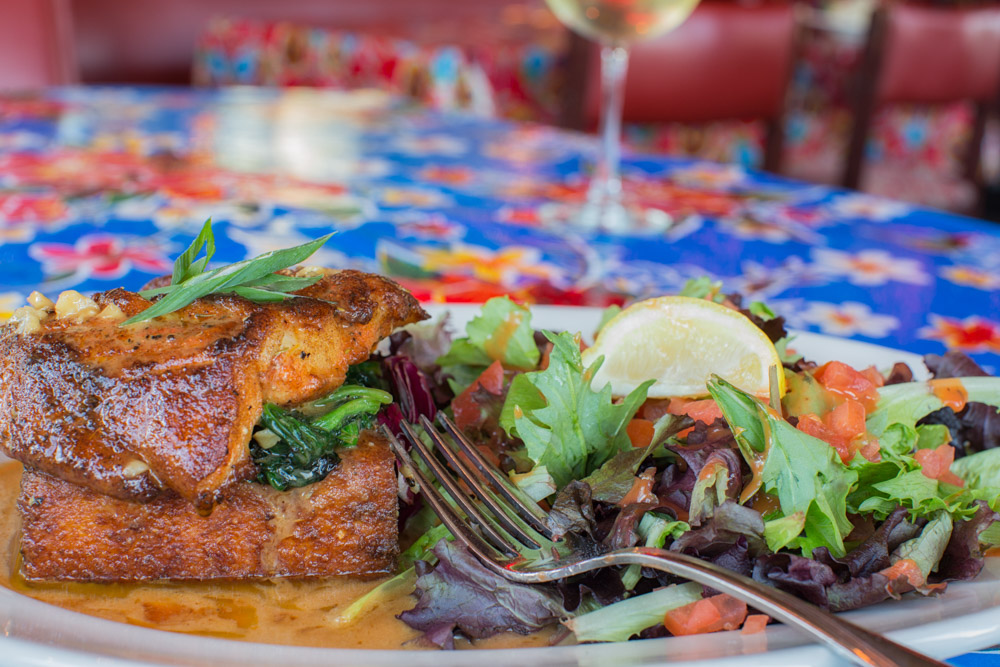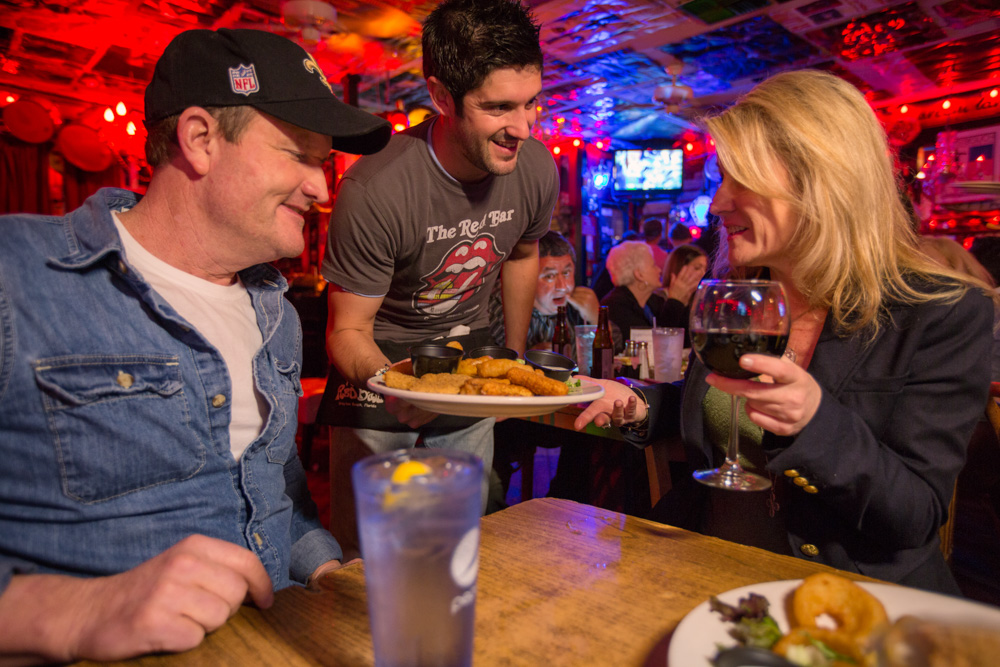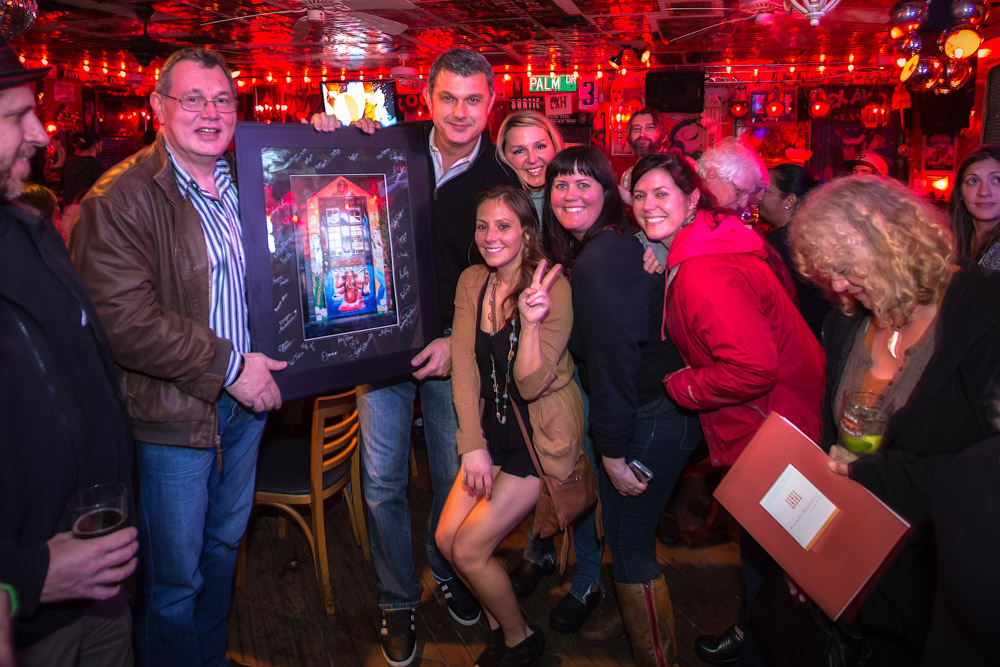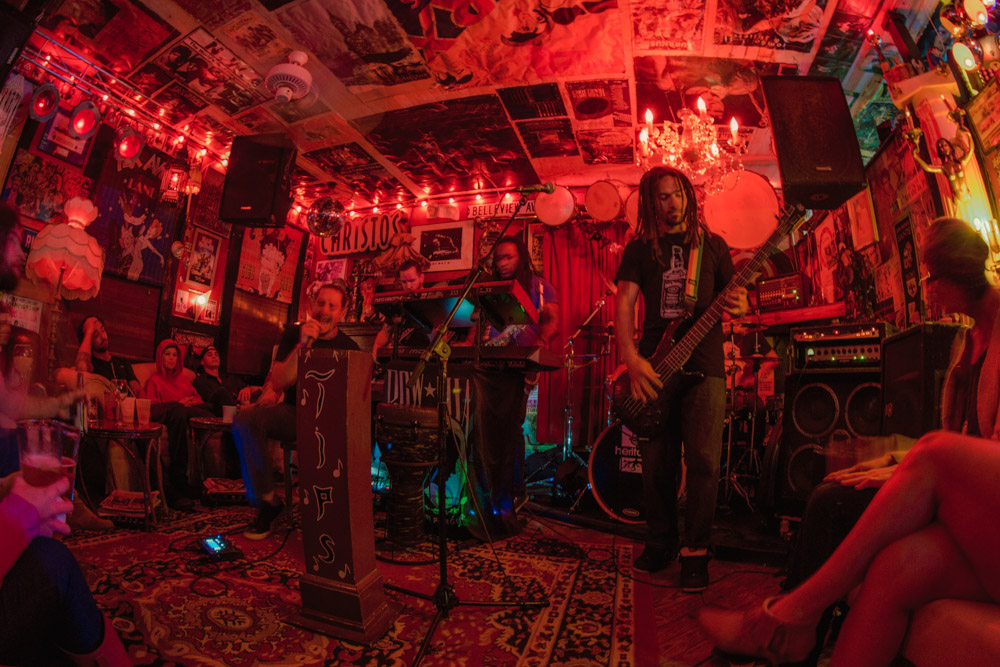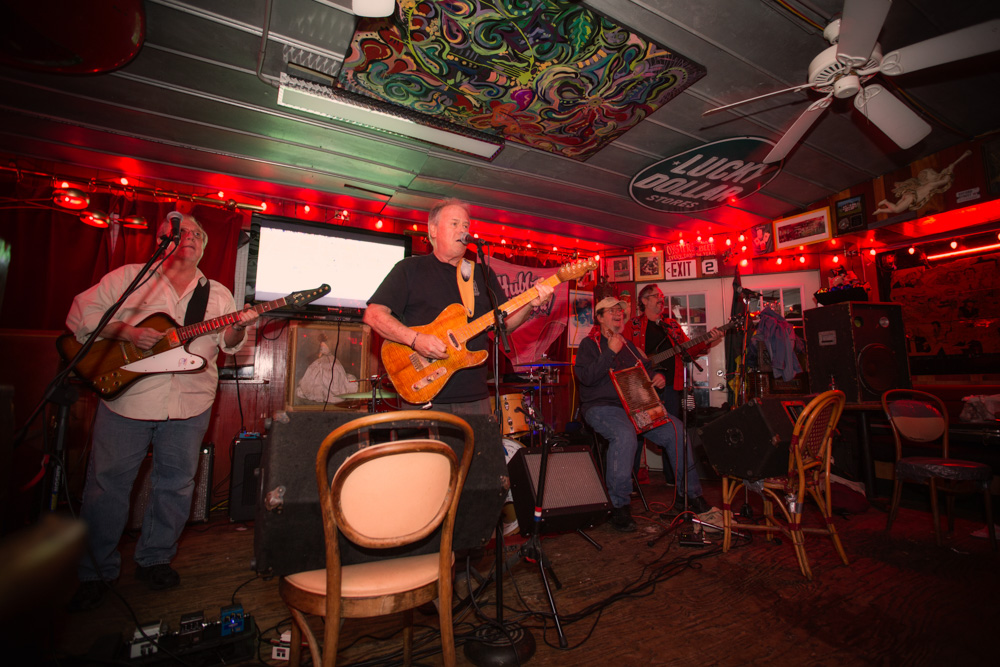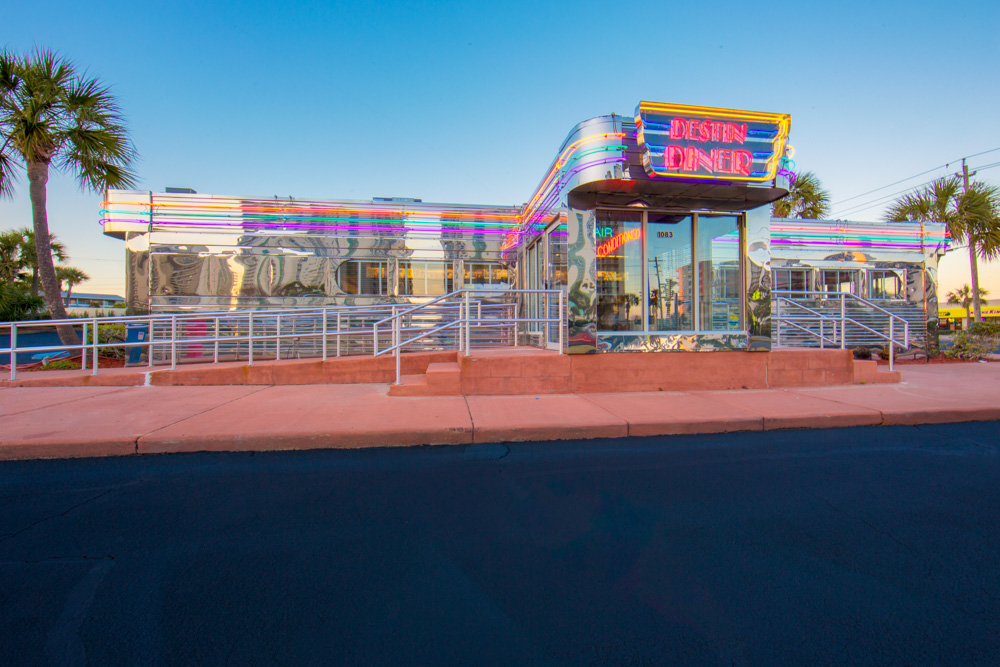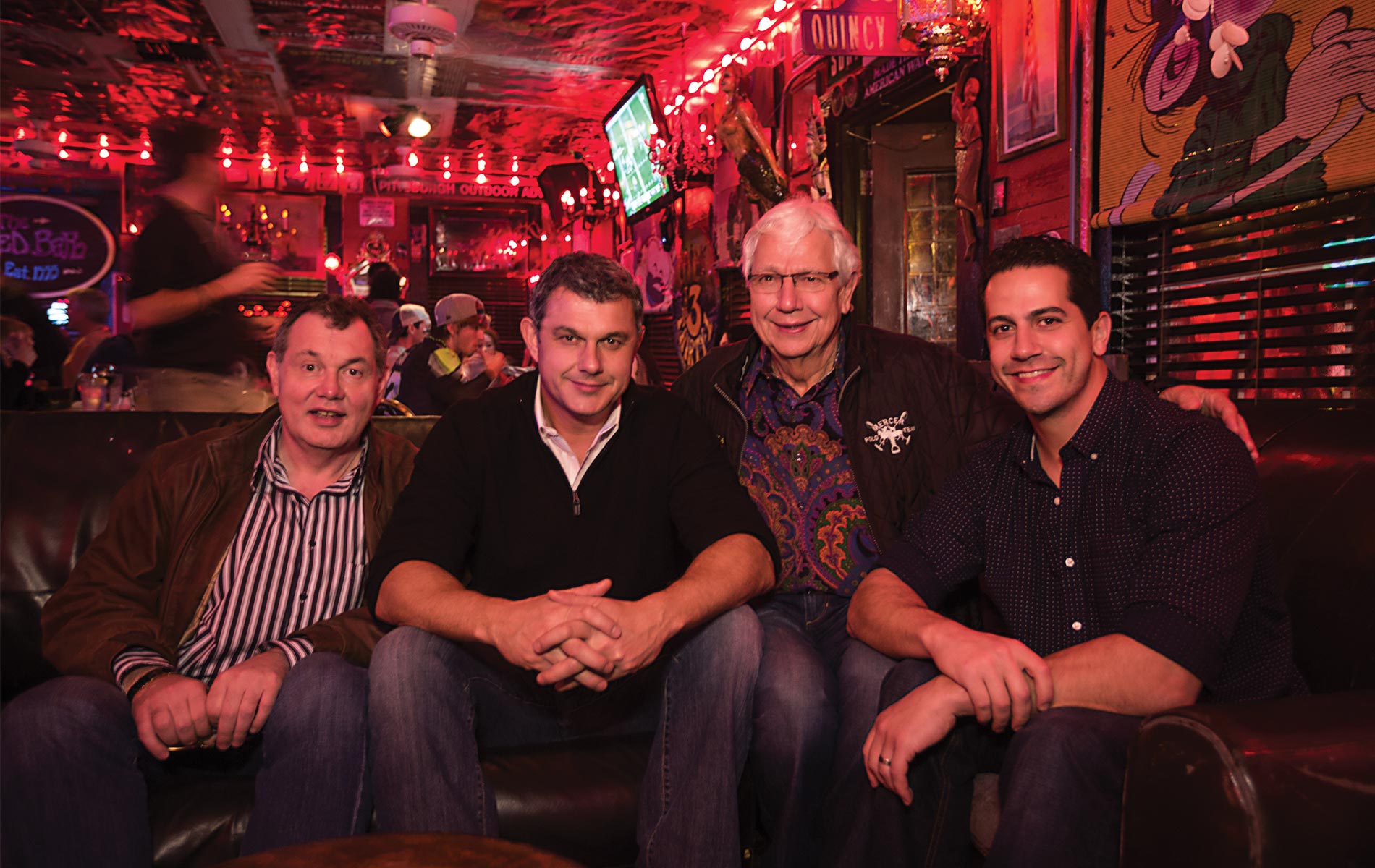
vie-magazine-redbar
From Belgium with Love
Oli Petit Celebrates Twenty Years with His Famed Red Bar
Interview by Chad Thurman | Story by Tori Phelps
Photography by Romona Robbins
In a vacation hot spot like South Walton, Florida, there are restaurants geared toward tourists and restaurants that get the local business. Then there’s the Red Bar. A Grayton Beach institution for twenty years, it attracts cultlike devotion from visitors and residents alike who happily endure out-the-door lines in order to snag a table.
It’s an anomaly in the hospitality industry, and plenty of venues would love to get their hands on the Red Bar’s formula for success. It certainly isn’t fancy tablecloths or a mile-long menu filled with haute cuisine, although the food is consistently good! The decor is funky, the ambience is ultracasual, and the five or so entrées are more “straight from the sea” than “straight from Paree.” The reason for the Red Bar’s enduring success can be summed up in two words: Oli Petit.
Originally from Liège, Belgium, Oliver Petit learned the restaurant ropes from his father, Louis, who had moved to the United States in the 1970s. Oli eventually joined Louis in Little Rock, Arkansas, and helped him create a new restaurant from the ground up. It was the first of several restaurants Oli would build. His trajectory was interrupted by mandatory military service in Belgium, where he became a base cook feeding 1,500 people three meals a day. He welcomed the experience as a learning opportunity until, only three months in, he slipped a disk moving a huge bag of potatoes. His military career was over in an instant, but his career in food was just beginning.
Oli returned Stateside in 1990 and settled in Fort Walton Beach, Florida, near his best friend, Chuck Stiles, familiar to locals as the owner of the popular Destin restaurant Graffiti. Oli hired out his considerable culinary skills to several area restaurants before deciding it was time to branch out on his own. He set his sights on a building that had been abandoned for a year, the latest in a long string of failed establishments at the location in Grayton Beach. Its history—and its bare-bones state—didn’t bother Oli, who had helped his father transform a similarly vacant space.
This time, however, he created a herculean task for himself: get the place ready for business by Super Bowl Sunday, just three weeks away. With the help of three dedicated pals, Oli met his self-imposed deadline, launching Piccolo Restaurant and the Red Bar in January 1995.
I thought with that, I could pay the rent and the light bill. But the doors blew open the first day, and people came in and started partying. Just like that—from day one.
The Piccolo portion of the name, a tribute to his father’s restaurant in Little Rock, fell by the wayside fairly early on. But everything else about the business caught on immediately. With low overhead and even lower expectations, his initial goal was to gross two hundred dollars a day. “I thought with that, I could pay the rent and the light bill,” he recalls. “But the doors blew open the first day, and people came in and started partying. Just like that—from day one.”
Needless to say, he had ridiculously underestimated the Red Bar’s appeal. Oli modestly chalks it up to “the right time and place,” though owners of the previously shuttered restaurants might disagree. Actually, the time element might have helped. In an era when all other bars on Scenic Highway 30-A closed at 10 p.m., the Red Bar stayed open until 2 a.m. It soon drew waitstaff and bartenders from all the other bars and restaurants in town who needed a place they could unwind and let someone serve them.
His one glaring misstep early on was installing pool tables. If you’ve been to the Red Bar, it may be hard to imagine where in the world pool tables could fit. The short answer was that they didn’t. Not really. Oli found out that drunks and pool sticks weren’t a good combination, but more important, he needed to reclaim that space for dining. “Within three months, the pool tables came out,” he says. “I used to cover those billiard tables with tablecloths during dinner, and people literally sat on the pool tables to eat.”
The space and the sloshed-with-cue-sticks problems were solved, but he had to take care of one more issue: making nice with the neighbors. He admits to running afoul of noise laws on more than one occasion, even ending up in the newspaper a few times. The atmosphere for the first two years was “party hearty,” Oli says, including live music every night, and, when the band stopped, disco music cranked at top volume. With no air conditioning, the windows were thrown wide open, and his Grayton Beach neighbors were up in arms.
Oli was just trying to entertain his crowds, but he admits to going about it the wrong way. His life soon revolved around county commission meetings, liquor ordinances, and other problems lobbed at both the business and his patrons. The Red Bar has been under a noise and liquor ordinance since 1997, effectively shutting down his previous operational style. Oli accepted it with his usual good grace, even pulling his close time back to eleven o’clock. “I came to the realization that I liked my neighbors and that they had real concerns,” he says. “From 1997 until now it’s been harmony, and our relationship has been spectacular. I thank everyone in Grayton Beach who put up with me.”
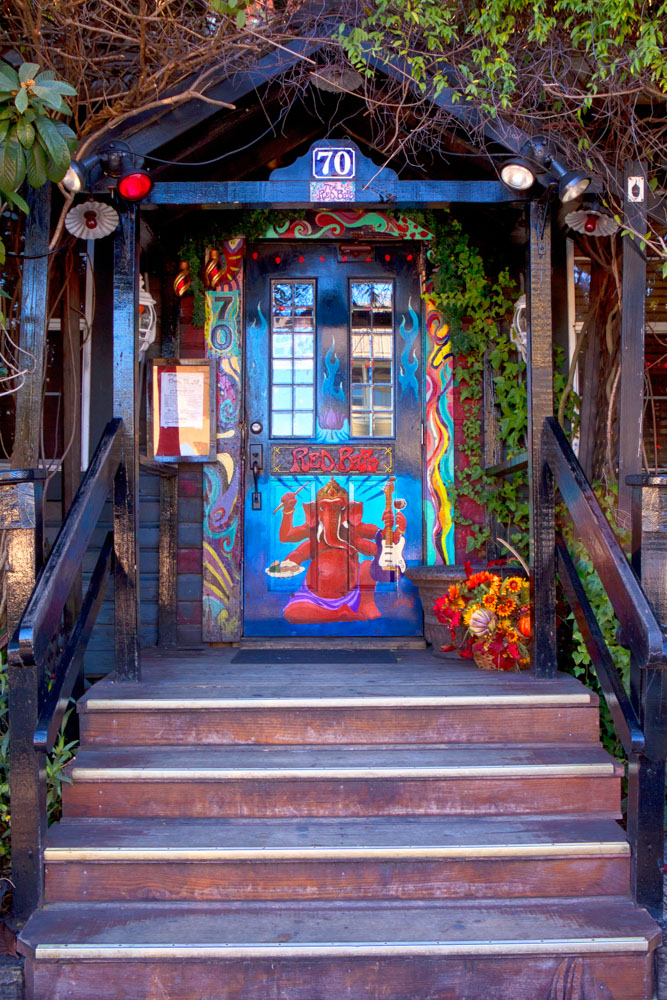
Recipe for Success
There was an unexpected upside to the initial turmoil. Oli credits that very public battle with putting the Red Bar on the map. And he didn’t even have to compromise on the band angle. The self-confessed closet musician—he’s a drummer—has had live music at the Red Bar for twenty years. “Every night I’m open, there’s a band playing for you, and twice on Sunday,” Oli adds.
It’s a win-win. As a music lover, he prides himself on booking great performers he thinks customers will enjoy. At the same time, Oli can continue to support local musicians and the art of music itself. And did we mention there’s no cover charge? It’s just part of the experience at the Red Bar, Oli maintains, insisting it would affect business if he messed with the live music.
As a music lover, he prides himself on booking great performers he thinks customers will enjoy. At the same time, Oli can continue to support local musicians and the art of music itself.
He may be right. After all, tourists and residents alike have come to know and love the bands at the Red Bar. There’s Hubba Hubba, of course, the band that played at the restaurant’s opening twenty years ago and is still popping in. The band’s influences include Delbert McClinton, the Memphis Jug Band, Ry Cooder, and Chuck Berry, among others, and its guitarist Duke Bardwell spent many years touring with Elvis Presley before moving to the Gulf Coast. Another local favorite band, Dread Clampitt, has been doing the double shows on Sundays, as well as Monday nights, for years. And John “Jabo” Starks has spent nearly as much time at the Red Bar as Oli; he’s played drums there five nights a week for eighteen years. Jabo first began playing on 30-A at Bud and Alley’s in Seaside, and he had previously toured with James Brown for years. “It’s just a real laid-back place; I’ve never played a place like the Red Bar,” Jabo says. “This is the best gig I’ve ever had. It’s a blessing and I’m thankful for it. Even more, when I have to go away and do some other things, I’m supported by Oli and by my friends and family here at the Red Bar. That’s just the way that is; it’s just a big family.”
Live music is part of the winning trifecta that Oli ultimately pinpoints as his recipe for success. “I feel like I give a lot to the customers,” he says. “You get a good meal, a good drink, and a world-class band.”
It’s a combination he doesn’t believe exists anywhere else on 30-A. That’s not to say that all of his customers adore all three parts. In fact, some put up with one or two aspects in order to enjoy what they do like. “Not everyone is coming to eat my chicken penne,” Oli says frankly. “There are a few regulars who don’t care for the restaurant; they think, ‘Five entrées? What the hell is that?’”
The food is a huge draw for others. Oli’s chef training has resulted in a small but excellent menu that offers fresh favorites like blackened grouper and crab cakes. Figuring out what’s working and what needs tweaking within his trifecta is a constant challenge, in part because the customer makeup is as varied as the music. “There are hard-core locals—the unassuming people who work for a living and then come out to hear the music,” he says. “They’re not necessarily owners of big mansions, but they live this beach life and come here to love this place. And then we get those big mansion owners in here too, and the two groups mingle. I love that.”
They’re not necessarily owners of big mansions, but they live this beach life and come here to love this place. And then we get those big mansion owners in here too, and the two groups mingle. I love that.
The relaxed atmosphere inside the Red Bar facilitates a mix-and-mingle vibe. The eclectic decor may look haphazard, but there’s a reason for—and a story behind—everything. Oli’s decorating style was inspired by a bar his father owned in Belgium called Bric à Brac. The design, he recalls, was a bohemian mix of texture and color that paid tribute to pop culture. Oli wanted to bring a similar sense of meaningful whimsy to the Red Bar, but it’s not a concept that lends itself to a one-and-done shopping trip. “This look is not an easy thing to re-create; there’s a lot of research,” he says. “All of these pieces come from years of collecting.”
Father and son are kindred spirits in their dedication to hunting down special pieces via garage sales, flea markets, and some seriously nasty piles of castoffs. The recipient of these often-elusive treasure-hunting trips isn’t just the Red Bar. The family restaurant dynasty also includes Louis Louis, run by Oli’s younger brother, Louis. Their brother Philippe is also heavily involved in the family business. Louis Louis, located on Highway 98 in Santa Rosa Beach, has a lot in common with the Red Bar, from the carefully chosen decor to the short but sweet dinner menu. There’s also a courtyard in which diners can bask in the Florida weather.
Up next for the family is the Destin Diner at the corner of Airport Road and Highway 98. It will serve typical diner fare—breakfast favorites and cheeseburgers—during the day, with the nighttime menu incorporating Red Bar–like food. “It will be a kicked-up diner because I have a liquor license,” he explains.
The Petit family’s legacy of restaurant success (excluding a years-ago attempt called 331 Bar and Restaurant) speaks to a tradition of hard work, good instincts, and a willingness to take risks. To that list Oli would also add “an extraordinary staff,” who he says are the unsung heroes behind the Red Bar. He can easily rattle off a handful of people with remarkably long tenures. “Keagan Anderson, our manager, has been with the Red Bar for fourteen years; server and resident artist Bryan Hand has been with me since 1997; Georgie behind the bar has been here since 1996; and Stacey has been here since 1995,” he lists.
These long-term stints are particularly noteworthy considering the high turnover rate common in the industry. Employees clearly love working with Oli, and, in turn, the prosperous business rewards staffers well. Whether it’s because of love, money, or both, Oli hopes his Red Bar crew continues to stick around. “They’re good at what they do,” he raves. “They create an environment for themselves that reflects their best. They look at their time here as their own business, and they have that freedom.”
With so many longtimers on the payroll, Oli has developed a relationship with them that’s more than employee-employer. And that’s a double-edged sword. “The musicians, the staff, the people of the Red Bar—we’ve all grown up together, and these years have bonded us like a family,” he says. “We’ve had our disagreements and reconciled. It’s always been a bit of my struggle to manage being one of the guys with being a business owner. I’ve failed many times when I made bad judgments or fired or hired the wrong person. But twenty years later, we’re still kicking.”
Oli and the Red Bar are more than kicking—they’re thriving. From the beginning, he was committed to staying active in the business; he knew that privately owned restaurants rarely survive otherwise. Fortunately, it’s a lifestyle Oli seems born for. And he welcomes anyone who wants to join him for a good meal, a good drink, and a world-class band.
— V —
Share This Story!
KEEP UP WITH THE LATEST STORIES FROM VIE
